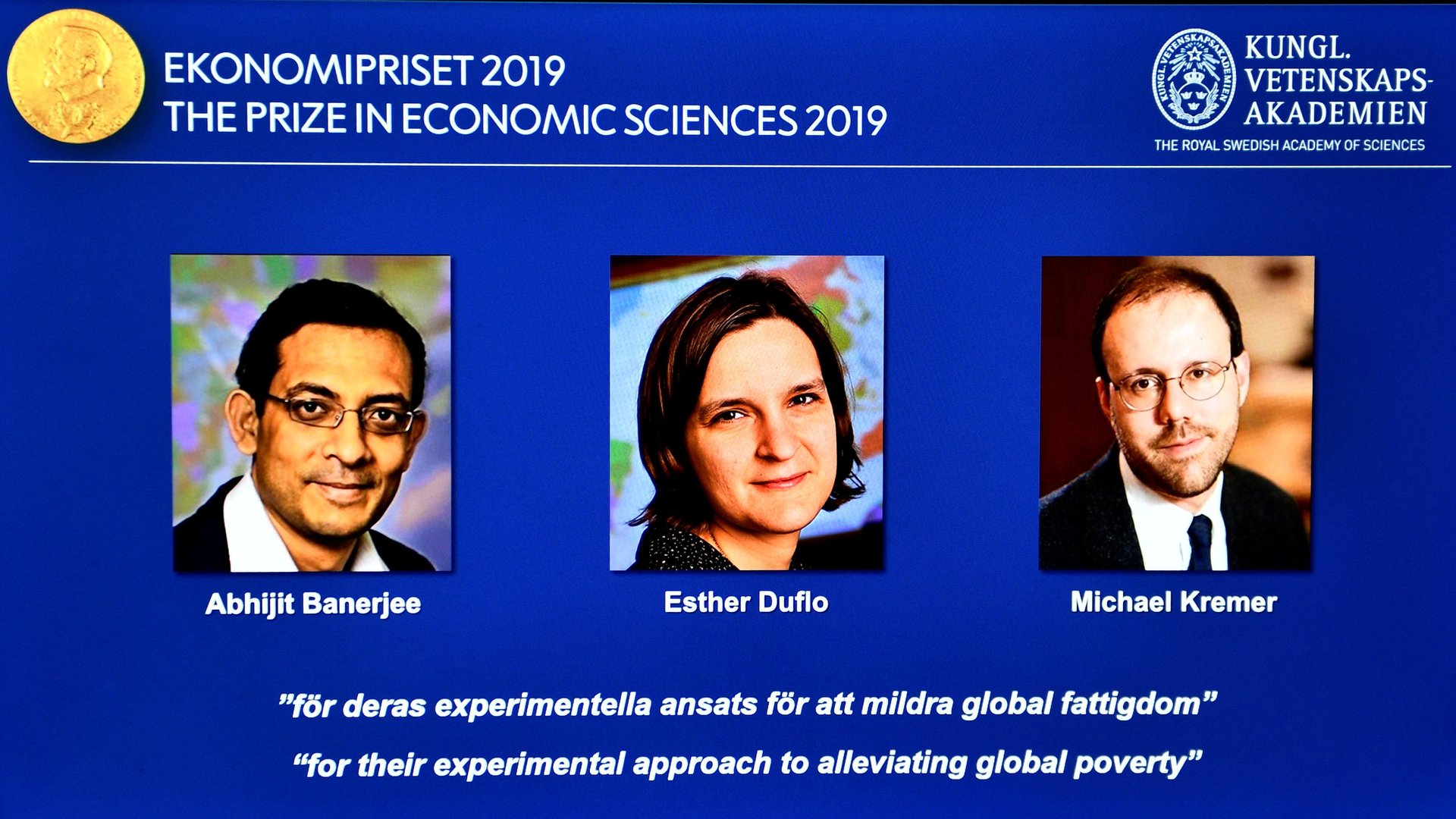Economist Esther Duflo’s husband, a fellow Nobel laureate, is everything the BJP hates
The Indian-American who just won the world’s highest honour in economics is simply the antithesis of much that the current Indian government stands for.


The Indian-American who just won the world’s highest honour in economics is simply the antithesis of much that the current Indian government stands for.
Abhijit Banerjee won this year’s Sveriges Riksbank Prize in Economic Sciences in Memory of Alfred Nobel, along with his wife Esther Duflo and Michael Kremer. However, some Indian media headlines reduced Duflo to just “…and his wife.”
Like they say, where there’s a will, there’s always a way for sexist headlines.
But that’s a story for another day.
The “anti-national”
Banerjee was born in Mumbai, Maharashtra, to economist parents Nirmala and Dipak Banerjee in 1961. He completed his bachelor’s degree at Presidency College in Kolkata, a master’s in economics from JNU, and PhD from Harvard University.
The economist has in the past criticised the Narendra Modi government’s policies and worked with opposition Congress party on key policies. Moreover, he is a product of New Delhi’s Jawaharlal Nehru University, an institution that has been at loggerheads with Modi’s Hindu nationalist Bharatiya Janata Party (BJP).
He is, thus, a prime candidate for the “anti-national” tag generously handed out by jingoistic supporters of the government.
The Ford Foundation International professor of economics at the Massachusetts Institute of Technology, Banerjee had been openly critical of the Indian government’s decision to demonetise high-value currency notes. In an interview to News18, some 50 days after demonetisation, Banerjee said that the exercise was being viewed with “bewilderment” in academic circles, particularly abroad. “I never understood the logic behind it. For one, why introduce Rs2,000 notes? And I suspect the pain is much greater than is being currently anticipated,” he had said.
Demonetisation was celebrated by the Modi government as a move to eliminate corruption and black money, and catapult India towards a digital economy. But economists, including former Reserve Bank of India governor Raghuram Rajan, with whom Banerjee has collaborated to write at least one book, have spoken out against it. Many even trace India’s current economic quandary to the drastic November 2016 move.
In other “anti-national activities,” Banerjee denounced the statistical manipulation of the country’s GDP figures. He was among the 108 economists and social scientists, including Jean Dreze, Duflo, Jayati Ghosh, and Reetika Khera, who signed a letter addressed to the India government against tinkering with the baseline year for calculating the GDP and projecting inflated growth figures. The letter received a lot of flak from supporters of the government, including 131 chartered accountants who thought this letter to be motivated and “devious.”
His credentials, needless to say, are impeccable.
As the news broke of him winning the coveted recognition, noted academics acknowledged Banerjee’s work as stellar, praising him for his “hard work” at Harvard University. This was a sly reference to prime minister Modi’s taunt—aimed at highly qualified academics critical of him—that “hard work is more powerful than Harvard.”
There’s more.
It turns out Banerjee helped the opposition Indian National Congress devise a minimum income guarantee plan as a major poll plank in the run up to the 2019 general election in India. As an economist who co-founded the Abdul Latif Jameel Poverty Action Lab for research towards alleviating global poverty, he was the man most suited for the job. But by aiding the opposition, Banerjee was squarely cast as the “other.”
For various people on social media and elsewhere, Banerjee’s “rebel” stance is a consequence of the patently “anti-national” JNU campus. Targeted by the current administration in 2016 for allegedly raising anti-India slogans, JNU has since become a metaphor for any activity that is opposed to the BJP, and hence, the nation itself.
Turns out that Banerjee even did time at Delhi’s Tihar jail during his JNU days in the 1980s when the Congress government was in power. Recently, asserting that government interference in educational campuses was uncalled for, he wrote in Hindustan Times newspaper about his days as a student protester:
We were beaten (I was) and thrown into Tihar jail, charged not quite with sedition, but attempt to murder and the rest. The charges were eventually dropped—thank god—but not before we spent ten days or so in Tihar.
He is known to talk freely and fearlessly. At the OP Jindal Lectures at Brown University in the US last week, he offered a prescription for the ailing Indian economy. The last item on that list was “pray.”
Not exactly something that would endear himself to the BJP.
Unsurprisingly, party officials, in an attempt to run down the recognition, were seen informing Twitter India today (Oct. 14) that, technically, there was no “Nobel Prize in Economics.” Grudging felicitations were, however, granted.